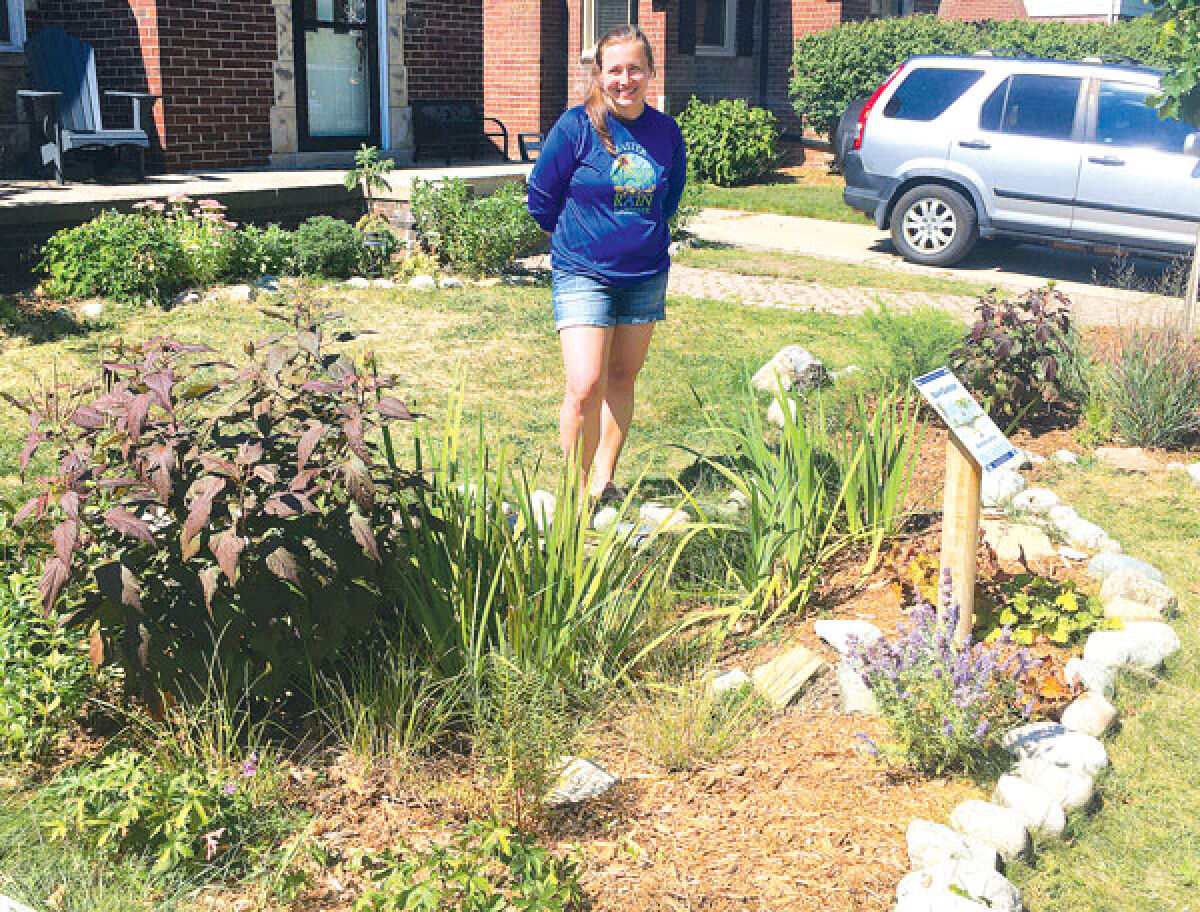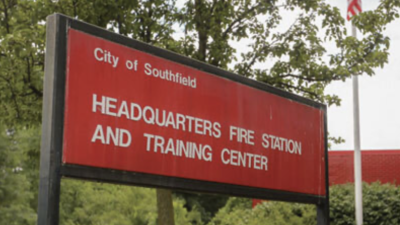SOUTHFIELD — The Southfield Parks and Recreation Department and the Friends of the Rouge are partnering to host a free presentation about rain gardens from 7 p.m. to 8 p.m. on Earth Day, April 22, in the Southfield Pavilion, 26000 Evergreen Road.
Jaclyn Heikkila-Stafiej, the FOTR’s restoration coordinator, said rain gardens play a pivotal role in helping keep excess stormwater from overflowing in communities that don’t have separate sewer systems. She explained that the combined sewer pipes only hold so much water from toilets, showers, washing machines and dishwashers — as well as stormwater runoff — so when there is an excess amount of stormwater, those pipes fill quickly, which can lead to basement flooding and other overflow.
“Sometimes we have what’s called a combined sewer overflow, which is a pipe that’s piping some of that excess water directly into the river to try to get it out there quicker. Sometimes, it’s either partially treated just to screen the solids, but still has a lot of those pollutants, like fertilizers, oils and other lawn chemicals that are getting into the river and can really cause harm to the overall health of the river, everything that lives in the river. And, of course, us, who rely on the river too,” Heikkila-Stafiej said. “Rain gardens are able to capture, store and manage that water right where they are. Keeping it out of the system, especially during rains, is really helpful.”
She added that deep-rooted Michigan native prairie plants can reach far into the ground, some reaching 15 feet or more down into the soil, creating a channel to pull the water down. Excess groundwater is then able to replenish the river naturally, and as the plants take in the water, they naturally filter out pollutants.
Heikkila-Stafiej mentioned that a rain garden also serves as a pollinator garden, providing food and habitat to important pollinators such as bees, butterflies and hummingbirds. She shared that some of her favorite Michigan native plants are purple coneflowers, black-eyed Susans, blazing star flowers, and blue flag irises, and that fox sedges and ferns do well in rain gardens and are a great way to add texture. For beginners, FOTR offers rain garden kits, which is how Heikkila-Stafiej started her rain gardens.
“Another thing that we suggest for some folks that are new to rain gardening, and maybe they don’t want to start in their front yard, they could do what I did. I started one in my backyard, taking rainwater off of my garage. So, I started there with some of my favorite purple flowers. I’m also a lover of the color purple; there are so many beautiful native purple flowers. I think I put that one in 2020. In 2021, I put another rain garden in the front,” Heikkila-Stafiej said. She said that she’s planning on ripping up some of her lawn to plant wild strawberries, since they are a great ground cover.
Pat McLamore, the president of Southfield Parks and Garden Club, emphasized the importance of research when planning a garden.
“I always tell people, ‘Do your research. Understand where you’re going to put your rain garden.’ I can tell you general information about it, but if you don’t understand where you want to put it or what the area is, whether or not it’s conducive to even put a rain garden in, then that information is for naught,” she said.
She recommended planting native, noninvasive plants when installing a rain garden. She said the Southfield Parks and Garden Club is working with the Southfield Historical Society and the Detroit Chapter of the Xerces Society for Invertebrate Conservation, an international nonprofit organization that “protects the natural world through the conservation of invertebrates and their habitats.” Through this partnership, native plants will be installed in a roughly 300-square-foot space at the Mary Thompson farmhouse to display native plants that Thompson would’ve grown.
McLamore added that anyone interested in volunteering or joining the Southfield Parks and Garden Club is welcome to attend one of the meetings, which are held from 7 p.m. to 8 p.m. on the first Tuesday of every month, April through October in Room 111 of the Parks and Recreation Department building at 26000 Evergreen Road.
Registration for Southfield Rain Gardens 101 is not required if attending in person. The event will also be held virtually, and participants can register at therouge.org/earthday2024.
To learn more, visit therouge.org.
For more information about the Southfield Parks and Garden Club, visit southfieldparksandgarden.org, email sfldpgclub@gmail.com or call Pat McLamore at (248) 227-2812.
 Publication select ▼
Publication select ▼


























